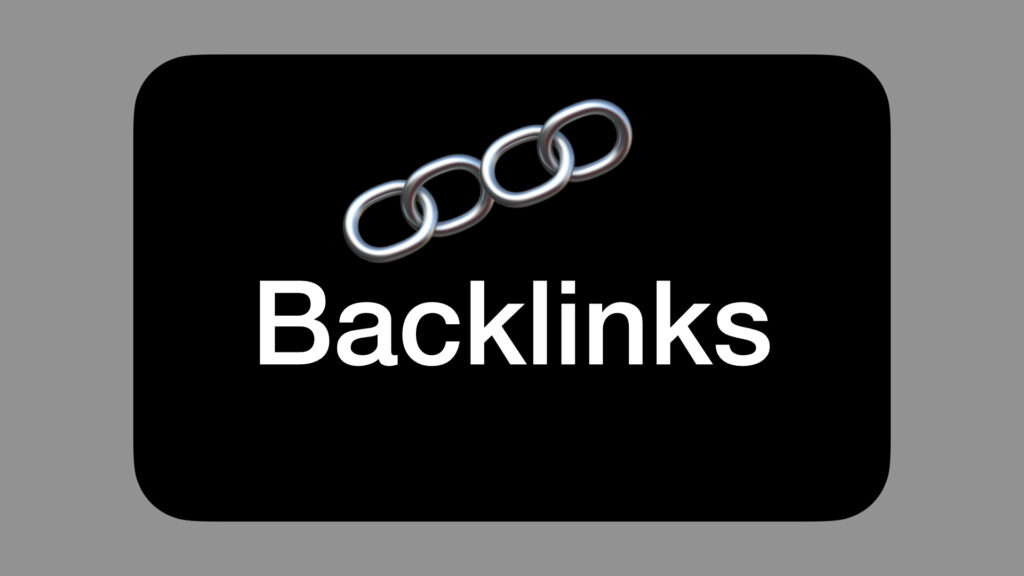
When it comes to getting your Christian website noticed online, backlinks are like the secret sauce that can make all the difference. You might have heard the term before, but what exactly are backlinks, and why do they matter for your website’s SEO (Search Engine Optimization)? Backlinks aren’t just a buzzword—they’re one of the key ways Google decides whether your site is trustworthy and worth showing to people in search results. Let’s break down what backlinks are, why they matter, and how to get the right ones for your website.
What Are Backlinks, Anyway?
Simply put, a backlink is a link from one website to another. If another website links to your Christian website, that’s a backlink for you. Think of it like a vote of confidence. When other sites link to yours, it’s like they’re saying, “Hey, this website has good stuff. You should check it out!” And Google pays attention to those votes.
But here’s the catch—not all backlinks are created equal. Getting a link from a high-quality, trustworthy website is like getting a thumbs-up from a respected leader in the community. But if your link is from a sketchy site that no one trusts, it might not do you any good. In fact, it could even hurt your SEO.
Why Backlinks Matter for Your Christian Website
Backlinks are a big part of how search engines decide which websites deserve to rank higher. The more quality backlinks you have, the more Google sees your site as an authority in your niche. It’s kind of like building up a reputation in the real world—if respected people vouch for you, others are more likely to trust you too.
For Christian websites, this means that if other trusted sites, like churches, Christian blogs, or faith-based organizations, link to your content, it tells Google that your site is valuable and relevant to people searching for those topics.
Good vs. Bad Backlinks: What You Need to Know
Not all backlinks will help your website. In fact, some can do more harm than good. Here’s a quick look at what makes a good backlink versus a bad one:
Good Example: A link from a popular Christian blog that mentions your article on “Biblical Financial Principles” or a link from a local church that shares your “Faith-Based Counseling Services” page. These are relevant and trusted sources that Google values.
Bad Example: Links from random, unrelated websites or spammy directories that have nothing to do with your niche. It’s like getting a recommendation from a stranger who knows nothing about you—not exactly convincing.
How to Get Quality Backlinks for Your Christian Website
Now that you know why backlinks are important, how do you actually get them? Here are some strategies to build quality backlinks that will boost your SEO:
- Reach Out to Christian Bloggers: If you’ve written a helpful blog post or created a resource, reach out to Christian bloggers who might be interested in sharing it with their audience. Maybe you wrote a post like “10 Bible Verses for Overcoming Anxiety”—a Christian mental health blog might want to link to it.
- Guest Post on Relevant Websites: Offering to write a guest post for another Christian blog or website is a win-win. You get exposure to their audience, and they get fresh content for their site. Just make sure the site you’re writing for is reputable and shares your values.
- Build Relationships with Churches: If you’re part of a local church community or network, see if they’d be willing to link to your website from their “Resources” or “Community Partners” page. It’s a natural fit and helps both you and the church by providing helpful links to visitors.
- Create Shareable Content: One of the best ways to attract backlinks is to create content that people naturally want to share. Think infographics, guides, or in-depth blog posts that others in your niche would find valuable. The more useful your content, the more likely it is that people will link to it.
- Use Directories Wisely: Some online directories are actually useful, like local Christian business directories or faith-based networks. Make sure to only submit your website to directories that are relevant and trustworthy—don’t just aim for quantity.
The Long-Term Benefits of Quality Backlinks
When you build up a collection of high-quality backlinks, you’re not just helping your website today—you’re investing in long-term growth. Backlinks don’t usually bring instant results, but over time, they can significantly boost your rankings, bringing more people to your site without you having to pay for ads. It’s like planting seeds in a garden—nurture those relationships, and watch your online presence grow.
Here’s what to expect when you focus on quality backlinks:
- Increased Authority: Google sees your site as more trustworthy, which means you’re more likely to rank higher in search results for relevant keywords.
- More Organic Traffic: As your site moves up the rankings, more people will naturally find it when searching for topics related to your business.
- Better Connections in the Community: Building backlinks often means building relationships with others in the Christian community, which can open doors for future collaborations or partnerships.
Stay Focused on Quality, Not Just Quantity
It’s easy to get caught up in wanting as many backlinks as possible, but remember, it’s about quality, not just quantity. A handful of links from respected Christian websites is far more valuable than dozens of links from sites no one’s ever heard of. Focus on creating content that’s worth sharing, build genuine connections, and the backlinks will follow.
If you’re looking to build a stronger SEO foundation and connect with others through quality backlinks, we’re here to help guide you through the process. Reach out through our contact page, and let’s talk about how we can grow your online presence together. We’ve got your back!












